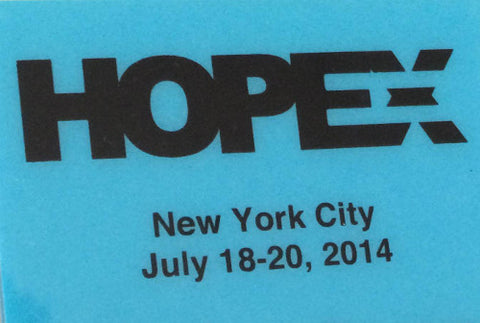
HOPE X (2014): "Obfuscation and its Discontents: DIY Privacy from Card Swap to Browser Hack" (Download)
Friday, July 18, 2014: 12:00 pm (Olson): Data collection, aggregation, and mining have dramatically changed the nature of contemporary surveillance. Refusal is not a practical option, as data collection is an inherent condition of many essential societal transactions. In this talk, we discuss one response to this type of everyday surveillance, a tactic called obfuscation. Tactical obfuscation can be defined as the strategy of producing misleading, false, or ambiguous data with the intention of confusing and/or inhibiting an adversary. Because obfuscation is relatively flexible in its use by average citizens as well as by experts, it holds promise as a strategy for DIY privacy and security. This talk presents a brief overview of obfuscation as political theory, including contemporary and historical examples, then focuses on two recent systems that address data collection: TrackMeNot, which shields searchers from surveillance and data profiling, and Ad-Nauseam, which targets advertising networks that track users across the web. The talk concludes with a consideration of the ethics of obfuscation as representative of a class of strategies whereby weaker parties can both protect against and confront stronger adversaries.
Daniel C. Howe
Daniel C. Howe
